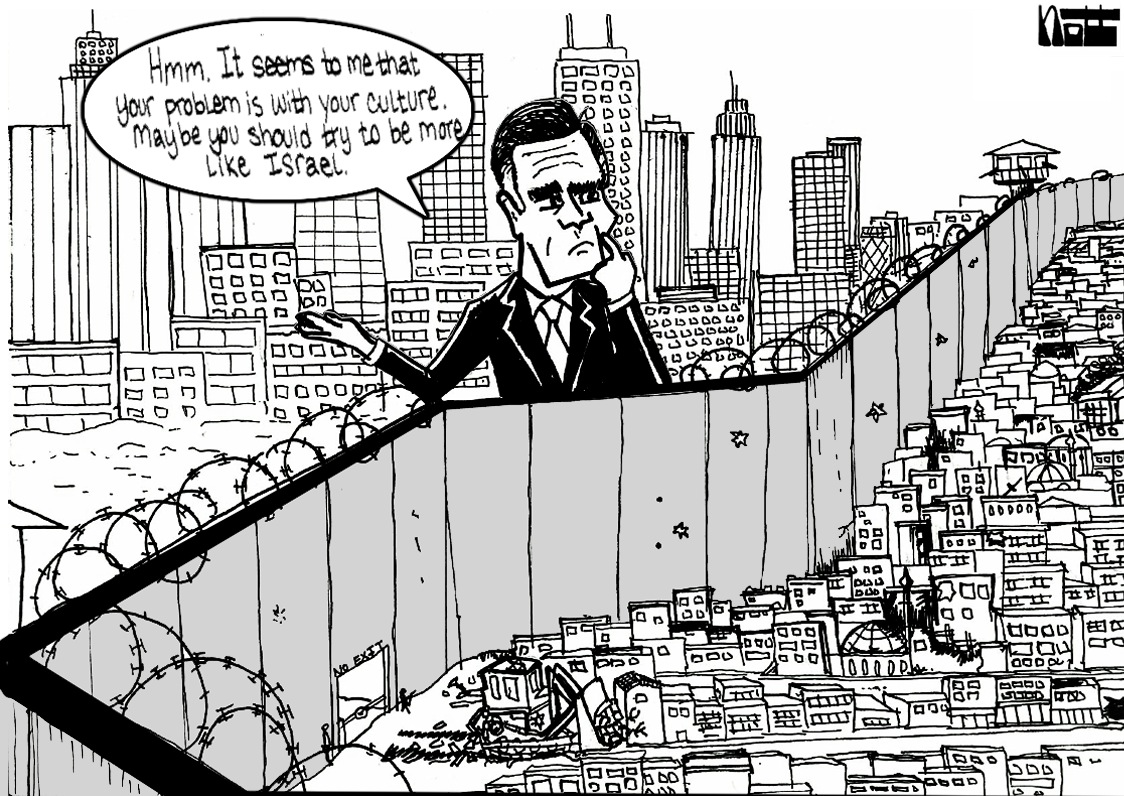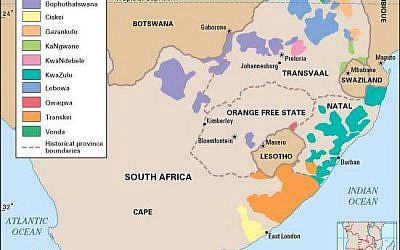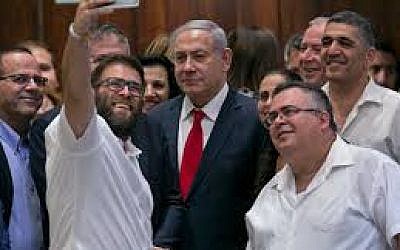
Before being allowed to immigrate to Israel in 1986, I was repeatedly detained with out trial ( and never charged) for anti Apartheid activities in South Africa. As soon as I step off the plane at Ben Gurion on a miserable wet morning on January 21st after been chained naked to a chair for much of the previous 3 months in a dimly lit damp cockroach invested BOSS (Bureau of State Security cel)l , I resolved my conflict " Human Right" versus " State Security" and have always placed Israel's State Security first and formost . I have always voted for the Likud and even served as a Likud Central Committee Member for 10 years..... and now Israel's New State Law throws me into a huge quandry. .... however way you look at it and especially section 7b it is too reminenced of Section 10 of the Urban Areas Act ( The Native Laws Amendment Act of South Africa. The Native Laws Amendment Act, 1952 (Act No. 54 of 1952, subsequently renamed the Bantu Laws Amendment Act, 1952 and the Black Laws Amendment Act, 1952 and commonly referred to as the Urban Areas Act), formed part of the very apartheid system of racial segregation in South Africa. It amended section 10 of the Group Areas Act. It limited the category of blacks who had the right to permanent residence in urban areas. While Section 10 had granted permanent residence to blacks who had been born in a town and had lived there continuously for more than 15 years, or who had been employed there continuously for at least 15 years, or who had worked continuously for the same employer for more than 10 years. Non-whites living in urban areas who did not meet these criteria faced forcible removal.
Israel's Basic Law reserves national self-determination exclusively for Jewish people and makes discriminatory immigration and housing national values. Yet, what is omitted – especially the lack of geographic boundaries – is at least as relevant as what is admitted: when situating the newly adopted Basic Law within existing and proposed Israeli legislation, practice and policy, what emerges is the consecration of a vision for an exclusively Jewish state in all of historic Palestine.
From the very beginning, as negotiations were taking place between white, European elites to give away Palestine, the benefactors of the to-be stolen land were adamantly opposed to a discussion of borders. Even after Zionist colonizers declared victory following the initial conquest of the majority of Palestinian land in 1948, their leadership refused to acknowledge the boundaries of their new State of Israel. Pinhas Rosen, who would become Israel’s first Minister of Justice, was overruled when he suggested to David Ben-Gurion that the state demarcate its borders in its 1948 Declaration of Independence:
Rosen: “There’s the question of the borders, and it cannot be ignored.”
Ben-Gurion: “Anything is possible. If we decide here that there’s to be no mention of borders, then we won’t mention them. Nothing is a priori.”
Rosen: “It’s not a priori, but it is a legal issue.”
Ben-Gurion: “The law is whatever people determine it to be.”[1]
Ben-Gurion: “Anything is possible. If we decide here that there’s to be no mention of borders, then we won’t mention them. Nothing is a priori.”
Rosen: “It’s not a priori, but it is a legal issue.”
Ben-Gurion: “The law is whatever people determine it to be.”[1]
Indeed, the law is not an instrument of justice, but rather a tool used by the powerful to serve their interests. Ben-Gurion was, as colonizers have often been, refreshingly honest. And while the intervening years of Israeli politics have been marked by brilliantly executed window dressing, the Israeli Knesset just pulled back the curtain and returned Israel to its roots. The text of the law is explicit, and what is unsaid is also revealing: No mention of Palestine, Palestinian history, Palestinians, or Arabs; no mention of equality, democracy, or human rights for all; and significantly, no mention of borders.
While the absence of borders might seem to suggest that the expansionist ambition of the early Zionists is still unrealized, the demarcation is actually omitted because there is no longer a need to articulate where the sovereign State of Israel ends. The facts on the ground and supporting legislation speak for themselves. The opening article of the Basic Law does nod to the imaginary two-state solution by purporting to make a distinction between Eretz Israel (the Land of Israel or historic Palestine) and the State of Israel (presumably land within the 1967 “Green Line” and any already-annexed Palestinian land such as East Jerusalem). However, the law itself blurs the line. For instance, Article 3 declares “a greater, united Jerusalem” to be the capital of Israel, reaffirming the illegal annexation of East Jerusalem. And Article 7 casually endorses “Judaization” or the promotion of Jewish-only settlement. Supporters of the law have rushed to interpret Article 7 as applying only to areas within the Green Line, though nothing within the law itself or in the policy of any Israeli government would suggest any such limitation. And reading the new Basic Law together with the over twenty “Annexation Laws” proposed in the Knesset over the last three years uncovers the legal scaffolding for the complete colonization of historic Palestine already in place.

These Annexation Laws are at various stages of the legislative process but all create the conditions for the de facto confiscation of private Palestinian land in the occupied West Bank through the application of Israeli domestic law to areas in and around the illegal Israeli settlements. The same method was used to illegally annex East Jerusalem and the Syrian Golan Heights to Israel in 1967. In its response to a Supreme Court petition by Adalah regarding the “Settlements Regularization Law” – the most egregious of these Annexation Laws – the Israeli government stated plainly: Jewish settlement in the West Bank fulfills the values of Zionism; and the Israeli Knesset, which is not subject to international law, is the source of authority in the occupied Palestinian territory. Before its Supreme Court, the Israeli government defined itself as the sovereign in the West Bank settlements, meaning there is only one legal regime operating on both sides of the Green Line – throughout Eretz Israel. And last week, the Knesset enshrined Jewish supremacy as the absolute constitutional value of this legal regime, while also definitively eliminating the possibility of Palestinian self-determination anywhere in that entire geographic space, from the Jordan River to the Mediterranean Sea.
The new Basic Law therefore signals the end of any prospective Palestinian national project, as long as this new era of bald-faced, legalized racism lasts. This law thus has severe consequences for Palestinians and other non-Jewish citizens or residents currently under Israeli control. With Judaization as a national value, the Israeli government could justify the forcible transfer of populations, and with discrimination enshrined, non-Jewish people have limited ways of challenging unequal access to land, housing, or state resources.

Codifying the myth of human hierarchy is deadly – when states elevate one group of people as more valuable, others are dehumanized and their very lives are threatened. At the same time, by explicitly (re)stating and constitutionalizing this myth, the Israeli Knesset has also clarified the root of the problem. And when the root of the problem is understood, so too is the solution. The alternative to this colonial, supremacist present is a decolonized future of equal rights for all. While settler-colonialism is a zero-sum game, decolonization is not. Supremacy insists that only one group of people deserve freedom; equality means we all do.
[1] Tom Segev. 1949, The First Israelis. Picador: 1988. p. xviii


